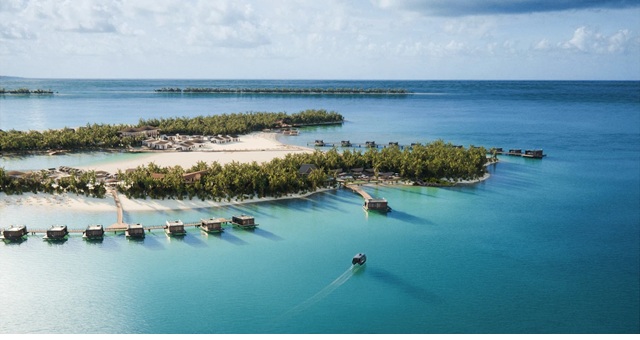AHICE Maldives Principal Partner Candela, a Swedish firm that designs and builds electric hydrofoil boats, has shared the findings of a new whitepaper that outlines a strategic path to protect invaluable marine ecosystems in the Maldives that aims to enhance the nation’s luxury tourism sector.
Speaking at AHICE Maldives on Thursday, Candela’s Regional CEO of Asia-Pacific, Björn Antonsson, said it is a key mission of Candela to help the Maldives become one of the most sustainable destinations on the planet.
“The Maldives is a natural beauty, being surrounded by the ocean and this unique asset needs to be conserved,” Antonsson told delegates.
“And this is why we are here as Candela today, to make sure Maldives remains the top destination in the world.
“We want to bring sustainable water transport to the world and this is especially relevant in the Maldives.”
The white paper, developed with the Centre for Maritime Studies at The Maldives National University, presents the Candela P-12 electric hydrofoil ferry as a solution to the environmental and operational challenges facing the island nation.
“Our Candela P-12 [craft] allows to do this while at the same time offering the most modern luxurious customer experience, further differentiating Maldives from other destinations in the world,” he said.
“The holiday really starts after immigration. A silent, luxurious and fast transfer. Some of your customers will really value this over a bumpy speedboat or a scary seaplane.
“This is the most modern luxury water transport in the world, and therefore perfectly aligned with the Maldives,” he said.
Antonsson highlighted how the P-12 can reduce running costs up to 70% by fuel savings alone.
“We want to build out local capacity to serve the P-12 for the little maintenance it needs, investing in local employment, knowledge, and further bringing the costs down,” he said.
The document also identifies a critical conflict where the diesel-powered boats essential for tourism are actively harming the fragile ecosystems that are the nation’s greatest asset.
Beyond the environmental benefits, the white paper also establishes a powerful business case for resort operators.
The paper ends with a call to action for leaders of the Maldivian resort industry and urges them to invest in this transformative technology not just as an operational upgrade, but as a direct investment in the long-term ecological and economic legacy of the Maldives.

